To Make and To Echo: a review of Katie Naughton’s The Real Ethereal By Margaret Yapp
Posted on December 30, 2024
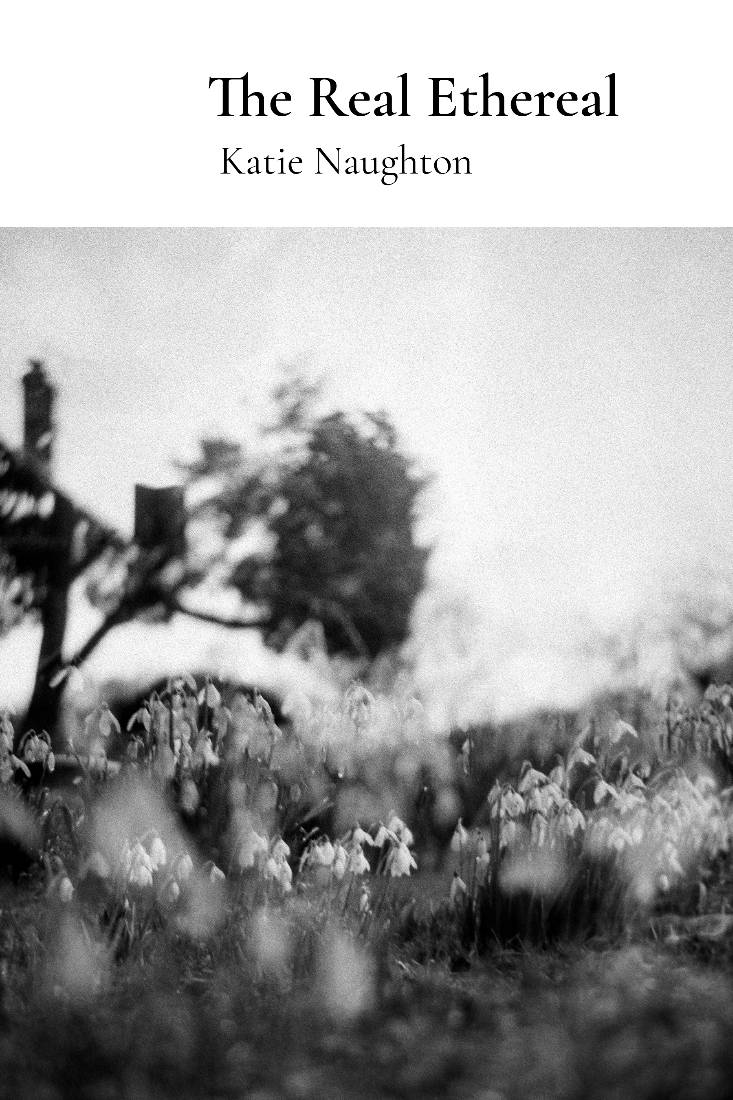
A NOTE:
The Real Ethereal is Katie Naughton's full-length debut, published with Delete Press this year, but you should absolutely check out her chapbooks Study (above/ground press, 2021) and a second singing (Dancing Girl Press, 2023).
Read Josephine Gawtry’s thoughts on the ecopoetics, grief, and time in The Real Ethereal.
Read rob mclennan’s thoughts on Naughton’s lineage with Robert Creeley.
No single review can capture it all. In this review, I’ll be focusing on Naughton’s poems in relation to their vehicle: the book.
Because Naughton’s poems are often intricately structured with deliberate white space, and because Naughton’s poems are, in The Real Ethereal, functioning as a unified whole – the book object requires careful and thoughtful design to maintain Naughton’s intended breath and pace.
The Real Ethereal is a beautifully designed vehicle, with credit to Brad Vogler (design and layout) and Annie Spratt (cover photo). The striking black endsheets and black pages with white type separating the four sections of the book create a sleek system of connected frames for the movements of Naughton’s poems.
The poems seem to be aware of their frames but are not stagnant within them. Columns of text push and pull against the gutter, stanzas are never cut across a page break, longer sections poems sometimes use the page as a unit, sometimes not, but they’re always aware of the page.
Ultimately, these are not just poems slapped into a book, rather, The Real Ethereal succeeds as a book made of poems.
Before the first section of The Real Ethereal begins, titled “day book,” Naughton offers us an introductory poem, in which she deconstructs the etymology of the word “poem.”
Hovering outside of the book, this is our thesis statement. Casting a shadow over the poems that follow: poetry is an act of making, making is an inherent human condition, and our making continues far beyond any individual, in our collective echoes.
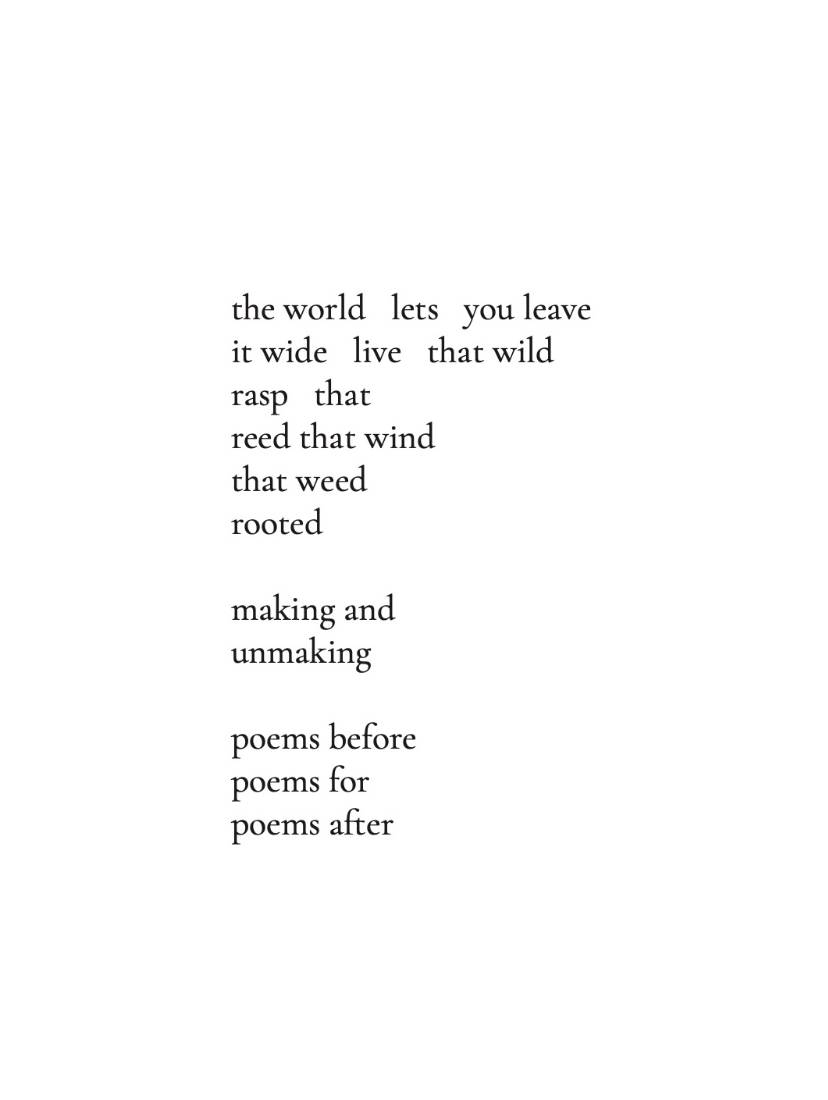
"day book” continues as the days continue: the days are made of poems and the days make the poems. And the speaker makes money. And making the money takes time. And the speaker uses the money to make a home. And making the home takes time. And the speaker worries about time, about money, about making.
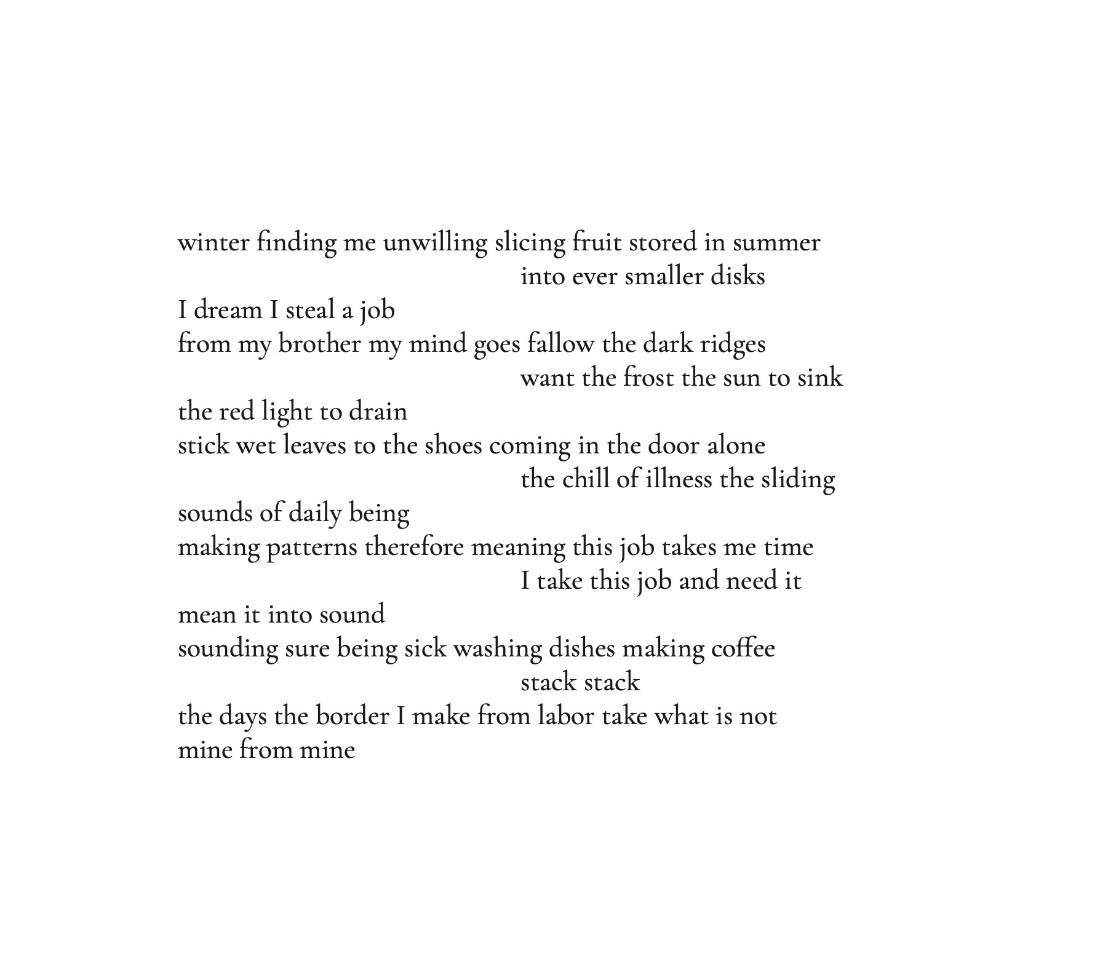
Many of Naughton’s poems, in “day book” and throughout the collection, end in an echo or stutter.
“occupant and occupy” (13)
“my my my time you you / do exist you do exist you do you” (19)
“green and grass and grass” (24)
These echoes and time loops are emphasized in Naughton’s consistent play with the contrapuntal form: columns of text converge, come apart, meet again. The speaker simultaneously stutters and doubles down, as though they’re rolling a word around in their mouth, refusing to bite down.
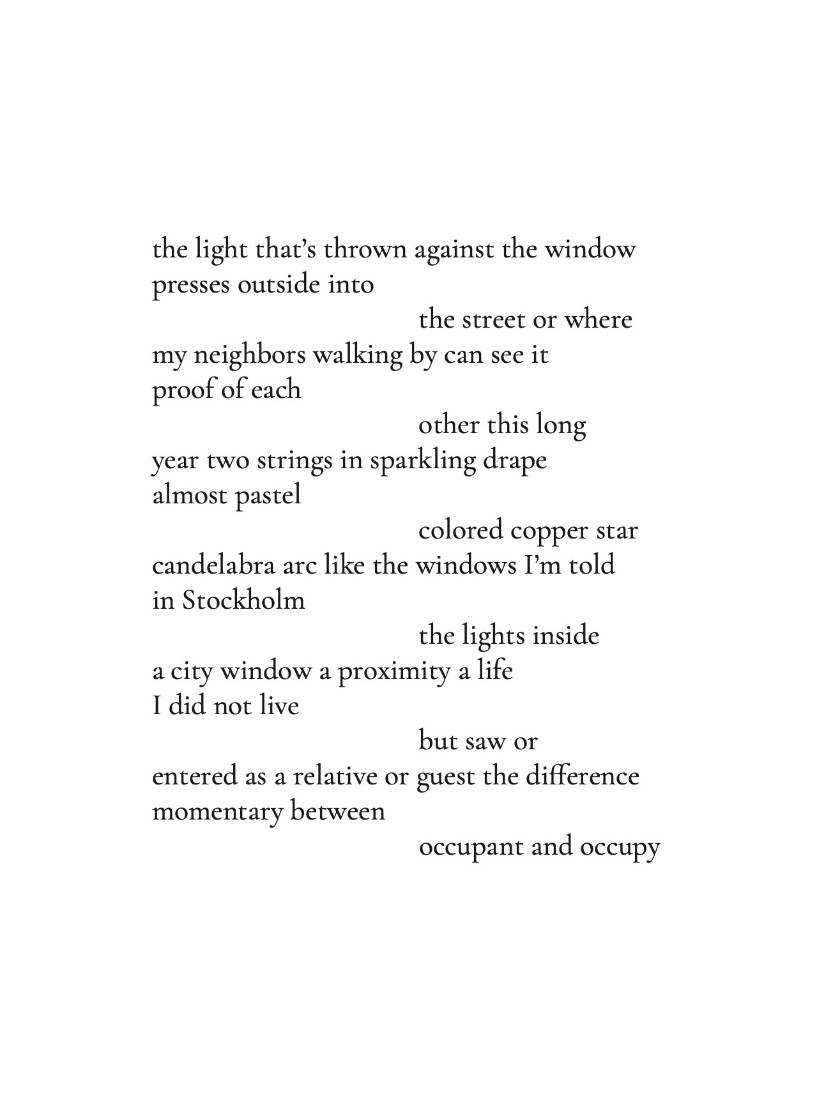
Sounds, words, phrases, images come back across sections, poems, and time, like muscles contracting and relaxing in a loop.
There are also, of course, the sonnets, an echo across time, contained in their form. The Real Ethereal’s second section, “hour song,” is made up of nineteen sonnets, all nineteen varying in their commitment to the form - they’re all 14 lines, but basically nothing else is consistent: there is white space smack in the middle of lines, no rhyme to speak of.
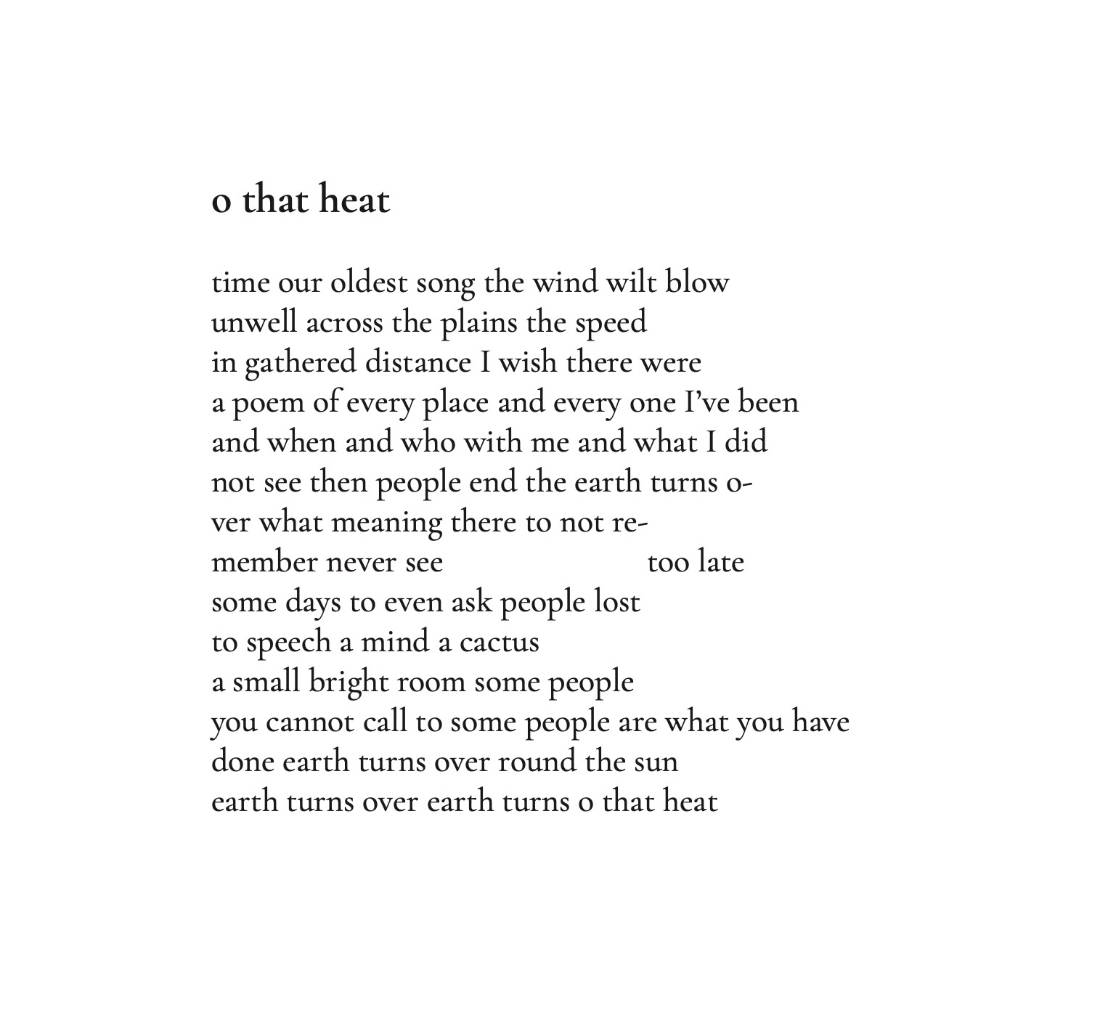
This sequence gestures at a sonnet crown, some lines repeat, but the poems resist any straightforward sonnet-ness beyond just enough gesture to be recognizable.
What's up with our persistent obsession with sonnets in English poetry? My romantic self thinks it’s all about the relationship of the sonnet to breath, to heartbeat, to pulse.
My practical self thinks poets love counting.
I think both of these urges - the romantic and the systematic - are here in Naughton’s poems.
The third section “the question of address,” has eight poems with the same name, distinguished only within parentheses.
So what do these echoes do? They’re mimicking the time loops Naughton obsesses about. The time loop of work and working, the time loop of death and memory, the necessary time loop of language: we are borrowing these letters, these words, these sounds.
In the fourth and final section, “the real ethereal,” time collapses and abstracts further. Words and phrases and symbols return and fracture:
"everything taken / everything given” (57)
"maddening / crash / through time” (58)
Naughton’s speaker knows that everything is borrowed: time, money, language, and even the body:
("not my letters not my minutes not my hand)” (61)
Or perhaps these things are borrowed, but gifted, bestowed:
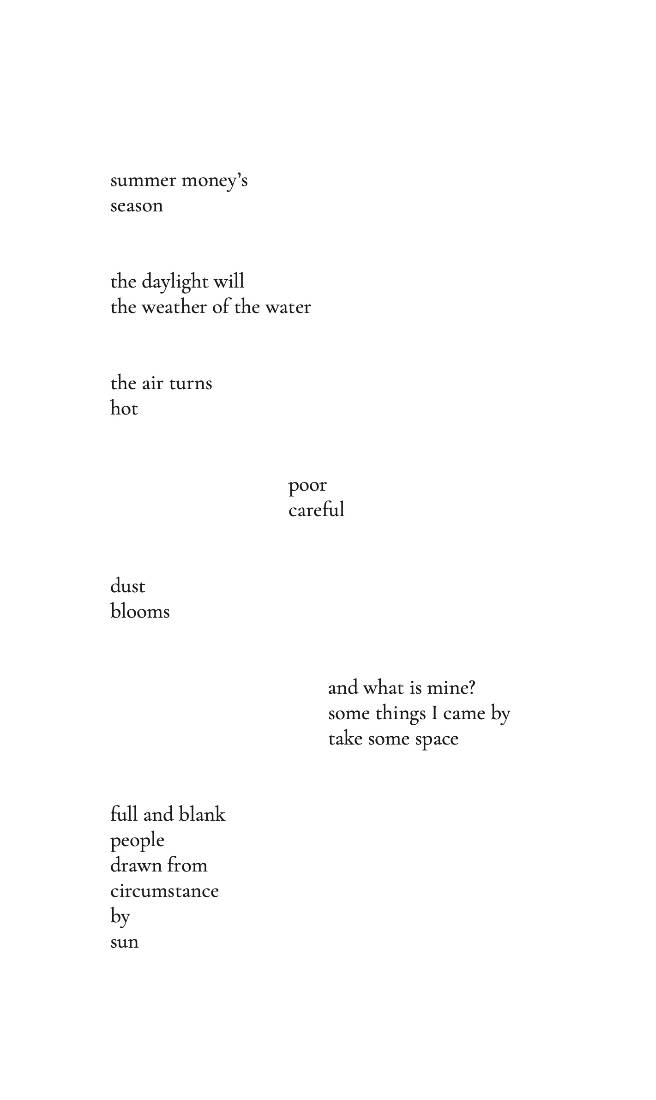
As far as I can tell, in this final section, there is no consistent form or pattern to the poems. There are some more contrapuntals, a longer poem in sections, some play with punctuation, and plenty of regular old left-aligned poems.
The echoes, however, continue and reckon back into themselves. The echoes stay, an unbreakable series of sound, and the making stays consistent, both a throughline and thesis for the entire collection.
The Real Ethereal ends as it begins: making.
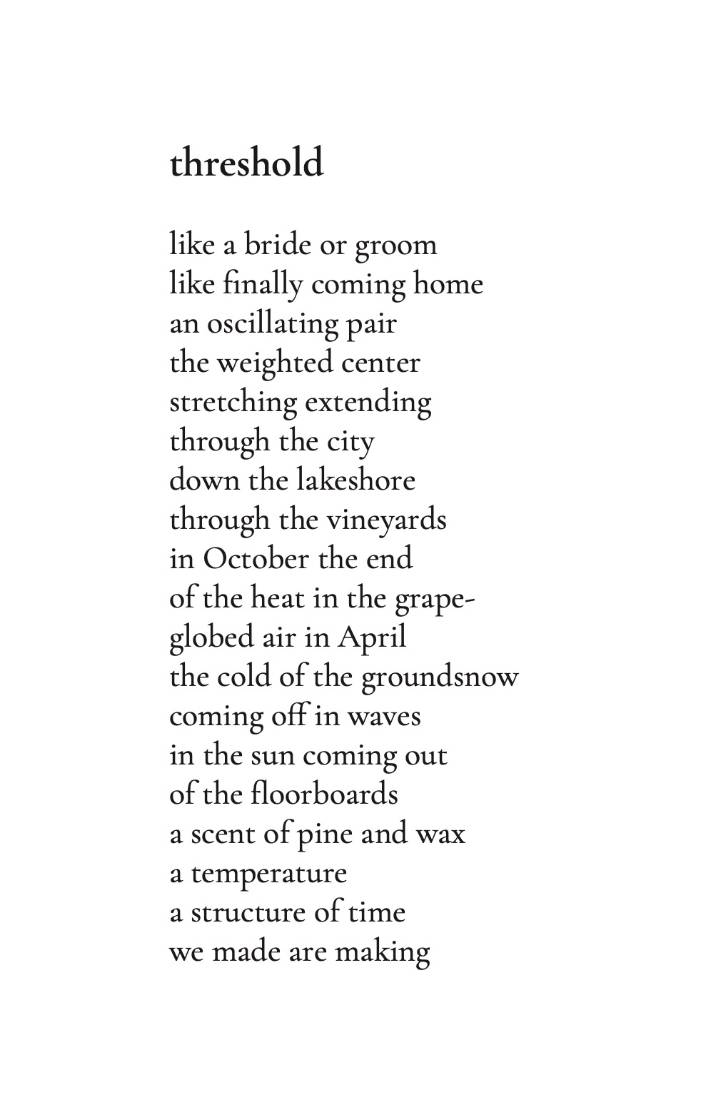
Katie Naughton is a poet living in Brooklyn, NY. She is a doctoral candidate in the Poetics program at SUNY - Buffalo working on a dissertation on opacity and non-self-identity in experimental poetry by women. She holds an MFA in creative writing from Colorado State University and was a resident at the Vermont Studio Center in August 2019. Her poetry has been published or is forthcoming in Bennington Review, Michigan Quarterly Review, Jubilat, Tupelo Quarterly, Tagvverk, and elsewhere. She is the author of The Real Ethereal (Delete Press, 2024) and the chapbooks Debt Ritual (forthcoming from Bunny/Fonograf, 2025), A Second Singing (Dancing Girl Press, 2023), and Study (above/ground press 2021), and is at work on a full-length collection “Debt Ritual.” She is the founding editor of Etcetera, a web journal of reading recommendations from poets.
Margaret Yapp is from Iowa City, Iowa. She works as the managing editor at Prompt Press and runs Rampage Party Press, an ongoing hand-printed broadside project and poetry magazine. She has an MFA in poetry from the Iowa Writers’ Workshop and is currently an MFA candidate at the University of Iowa Center for the Book. Her debut book of poems, Green for Luck, is out now from EastOver Press. You can read more at Margaret’s website which is margaret yapp dot com / instagram @bigbabymarg.